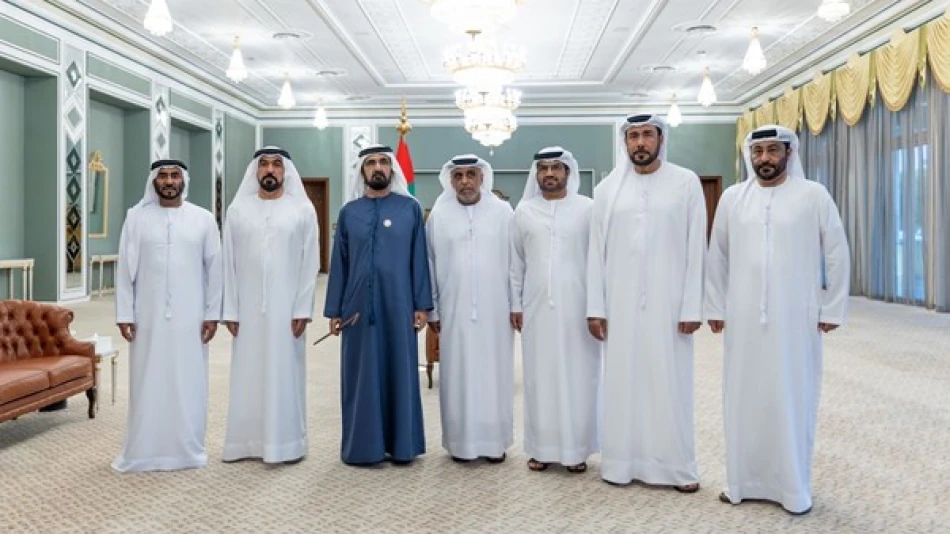
Dubai's Retired Police Generals Meet with Sheikh Mohammed bin Rashid
Dubai's Ruler Honors Police Veterans in Strategic Move to Cement Security Legacy
Sheikh Mohammed bin Rashid Al Maktoum, Vice President and Prime Minister of the UAE and Ruler of Dubai, hosted a high-profile meeting with retired Dubai Police generals, recognizing their foundational role in building what has become one of the world's most advanced urban security systems. The gathering underscores Dubai's systematic approach to institutional memory and leadership continuity in its security apparatus.
A Strategic Recognition of Security Architects
The meeting at Majlis Al Mudhaif in Dubai's Union House brought together six retired major generals: Khalil Al Mansoori, Abdul Qudoos Al Obaidli, Abdullah Al Ghaithi, Ali Ateeq, Ali Ghanem, and Jamal Al Jallaf. These veterans represent decades of institutional knowledge that transformed Dubai from a regional trading hub into a global city with security standards that rival Singapore and Hong Kong.
Sheikh Mohammed emphasized that "retired security personnel are a solid pillar in Dubai's security journey, who fulfilled their duty with honor and loyalty, and raised the banner of dedication in the most difficult and precise situations." This recognition goes beyond ceremonial appreciation—it reflects Dubai's understanding that security excellence requires generational knowledge transfer.
The Economics of Security Excellence
Dubai's security model has become a competitive advantage worth billions in tourism revenue, foreign investment, and international business confidence. The emirate consistently ranks among the world's safest cities, a designation that directly correlates with its ability to attract over 16 million visitors annually and position itself as a global financial hub.
Institutional Memory as Strategic Asset
Unlike many rapidly developing cities that struggle with security challenges during growth phases, Dubai's approach has been methodical. The veterans honored in this meeting oversaw the emirate's transformation during critical decades when it evolved from a modest port city to a megalopolis hosting global events, international businesses, and millions of residents from over 200 nationalities.
This institutional continuity mirrors successful models in Singapore, where founding security officials remain engaged as advisors, and contrasts sharply with cities that experienced security deterioration during rapid expansion phases.
Beyond Ceremony: A Model for Regional Security
The timing of this recognition is significant. As Gulf states continue diversifying their economies and opening to international investment under various national visions, Dubai's security framework serves as a regional benchmark. The UAE's broader security approach has influenced policies across the GCC, particularly in areas of cybersecurity, financial crime prevention, and urban safety protocols.
Sheikh Mohammed's statement that "security is not built in a day, but is made by loyal men through years of continuous work and sacrifices" reflects a long-term institutional philosophy that has practical implications for other emerging global cities.
The Succession Strategy
This meeting represents more than gratitude—it's part of Dubai's systematic approach to preserving institutional knowledge while transitioning to new leadership generations. The retired generals' experience spans the emirate's most transformative period, including the establishment of specialized units for cybercrime, financial investigations, and international cooperation that are now essential for any global financial center.
For investors and international businesses, this continuity signals predictable security standards and institutional stability that directly impact long-term investment decisions. Dubai's ability to maintain security excellence while rapidly expanding distinguishes it from other fast-growing cities that have struggled with crime increases during development phases.
Most Viewed News

 Layla Al Mansoori
Layla Al Mansoori






